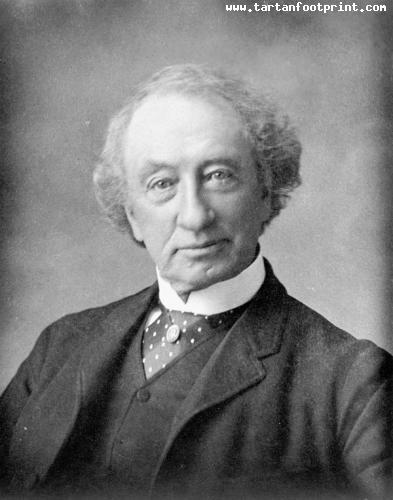You seem to be using an older version of Internet Explorer. This site requires Internet Explorer 8 or higher. Update your browser here today to fully enjoy all the marvels of this site.
August 28, 2018 by Alexander Meldrum
Sir John Alexander MacDonald (1815 – 1891) – First Prime Minister of Canada.
Sir John Alexander Macdonald (11 January 1815 – 6 June 1891) was the first Prime Minister of Canada (1867–1873, 1878–189...Sir John Alexander MacDonald (1815 – 1891) – First Prime Minister of Canada.
Sir John Alexander Macdonald (11 January 1815 – 6 June 1891) was the first Prime Minister of Canada (1867–1873, 1878–1891). The dominant figure of the Canadian Confederation, he had a political career which spanned almost half a century. Macdonald was born in Scotland; when he was a boy his family immigrated to Kingston in the Province of Upper Canada (today in eastern Ontario).
As a lawyer, he was involved in several high-profile cases and quickly became prominent in Kingston, which elected him in 1844 to the legislature of the Province of Canada.
By 1857, he had become premier under the colony's unstable political system. In 1864, when no party proved capable of governing for long, Macdonald agreed to a proposal from his political rival, George Brown, that the parties unite in a Great Coalition to seek federation and political reform.
Macdonald was the leading figure in the subsequent discussions and conferences, which resulted in the British North America Act and the birth of Canada as a nation on 1 July 1867. Macdonald was the first Prime Minister of the new nation, and served 19 years; only William Lyon Mackenzie King served longer. In 1873, he resigned from office over the Pacific Scandal, in which his party took bribes from businessmen seeking the contract to build the Canadian Pacific Railway. However, he was re-elected in 1878, continuing until he died in office in 1891. Macdonald's greatest achievements were building and guiding a successful national government for the new Dominion. Using patronage to forge a strong Conservative Party, promoting the protective tariff of the National Policy, and completing the railway.
He fought to block provincial efforts to take power back from the national government in Ottawa.
His most controversial move was to approve the execution of Métis leader Louis Riel for treason in 1885; it alienated many francophones from his Conservative Party.
He died in 1891, still in office; he is respected today for his key role in the formation of Canada. Historical rankings have consistently placed Macdonald as one of the highest rated Prime Ministers in Canadian history.
Early years, 1815–1830
John Alexander Macdonald was born in Ramshorn parish in Glasgow, Scotland, on the 10th (official record) or 11 January (father's journal) 1815.
His father was named Hugh, an unsuccessful merchant, who had married John's mother, Helen Shaw, on 21 October 1811.
John Alexander Macdonald was the third of five children. After Hugh's business ventures left him in debt, the family immigrated to Kingston, in Upper Canada (today the southern and eastern portions of Ontario). In 1820, where there were already a number of relatives and connections.
The family initially lived with another, but then presided over a store which Hugh Macdonald ran. Soon after their arrival, John's younger brother James died from a blow to the head by a servant who was supposed to look after the boys.
After Hugh's store failed, the family moved to Hay Bay (south of Napanee, Ontario), west of Kingston, where Hugh unsuccessfully ran another shop. His father, in 1829, was appointed a magistrate for the Midland District.
John Macdonald's mother was a lifelong influence on her son, helping him in his difficult first marriage and remaining a force in his life until her 1862 death.
John initially attended local schools. When he was aged 10, his family scraped together the money to send him to Midland District Grammar School in Kingston.
Macdonald's formal schooling ended at 15, a common school-leaving age at a time when only children from the most prosperous families were able to attend university.
Nevertheless, Macdonald later regretted leaving school when he did, remarking to his secretary Joseph Pope that if he had attended university, he might have embarked on a literary career.
Go to Wikipedia for Full History.
In this photo:


